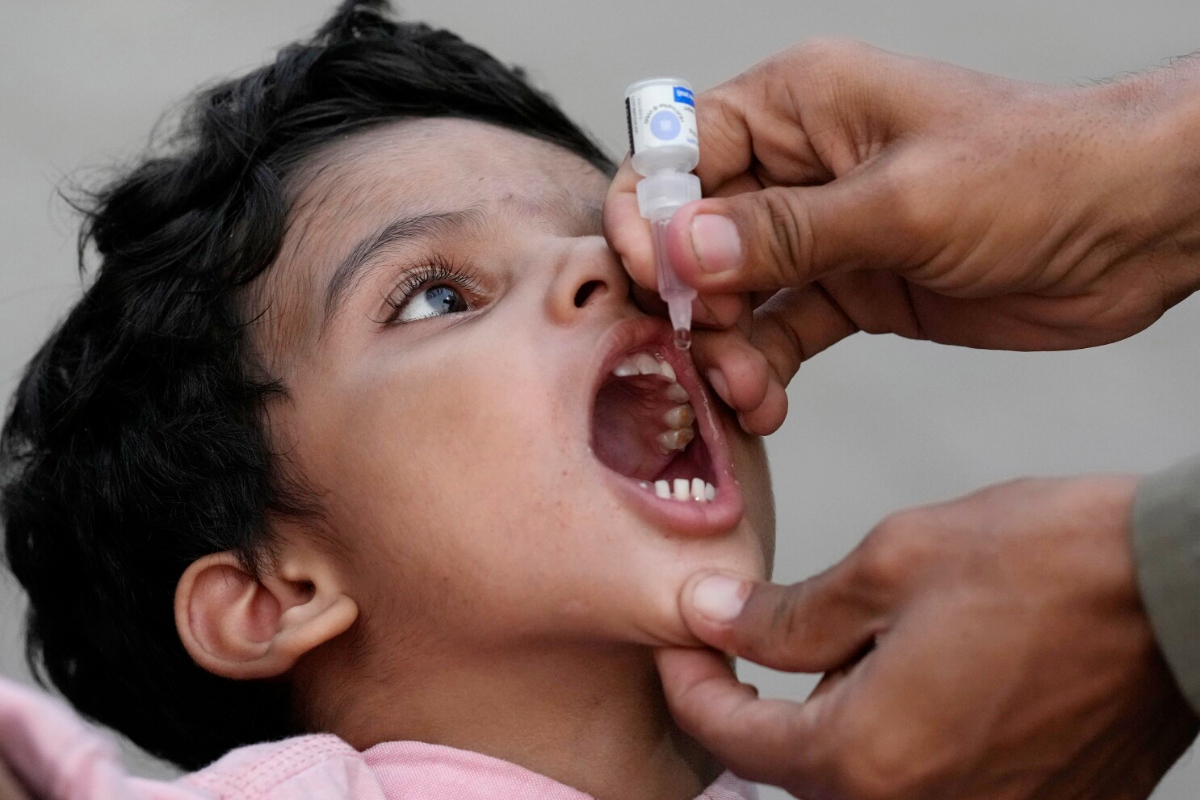During the current year, more than 41,800 children in Karachi were denied the polio vaccine by their parents when health workers visited their homes, it was revealed on Tuesday.
According to provincial data, Sindh has recorded a total of 42,999 refusal cases this year, with Karachi accounting for 41,875 of them. In contrast, the rest of Sindh has reported only 1,124 refusals.
With over 97% of the province’s vaccine refusal cases, Karachi remains a critical focus area in the fight against polio. The city’s 27 high-risk union councils are currently the target of intensified government efforts aimed at increasing vaccine acceptance and building public trust in the immunization initiative, according to a senior government official.
Irshad Ali Sodhar, the provincial coordinator of the Emergency Operations Centre (EOC), noted that refusal cases constitute less than 1% of the total eligible child population.
“As Pakistan’s largest and most densely populated city, Karachi remains a key challenge in polio eradication due to the continuous detection of the virus in environmental samples and the high number of refusals,” he said.
The city’s frequent population movement, he added, has contributed to the persistent presence of poliovirus in environmental samples.
“Despite repeated vaccination efforts, transmission risks remain high. Targeted campaigns are crucial to closing immunity gaps and protecting children from lifelong paralysis,” he explained, adding that Karachi has over 80 high-risk UCs, with 27 currently being focused on in the first phase of the campaign.
To address the high number of refusals, the department has launched multiple initiatives, including engagement with communities and key stakeholders.
“During the February 2025 national immunization drive in Karachi, 2,799 health facilities were mapped and actively involved in supporting the campaign. More than 2,900 schools and seminaries participated in raising awareness among children and parents about polio vaccination,” Mr. Sodhar said.
He added that mosques were also engaged in spreading awareness through sermons and congregational prayers. Additionally, 3,442 influencers—including teachers, scholars, and community leaders—were mobilized to advocate for vaccination.
“These efforts are expected to help overcome refusals and strengthen community trust in the polio eradication drive,” he emphasized.
Asked about the trend of refusal cases in recent years, Mr. Sodhar noted that the figures were significantly higher five years ago, ranging between 90,000 and 100,000 cases.
EOC officials stated that the ongoing week-long polio campaign, launched on February 22 in collaboration with various partners, is the second such drive in Karachi within eight months. The initiative aims to administer oral polio vaccine (OPV) to 562,163 children under the age of five and fractional inactivated polio



















